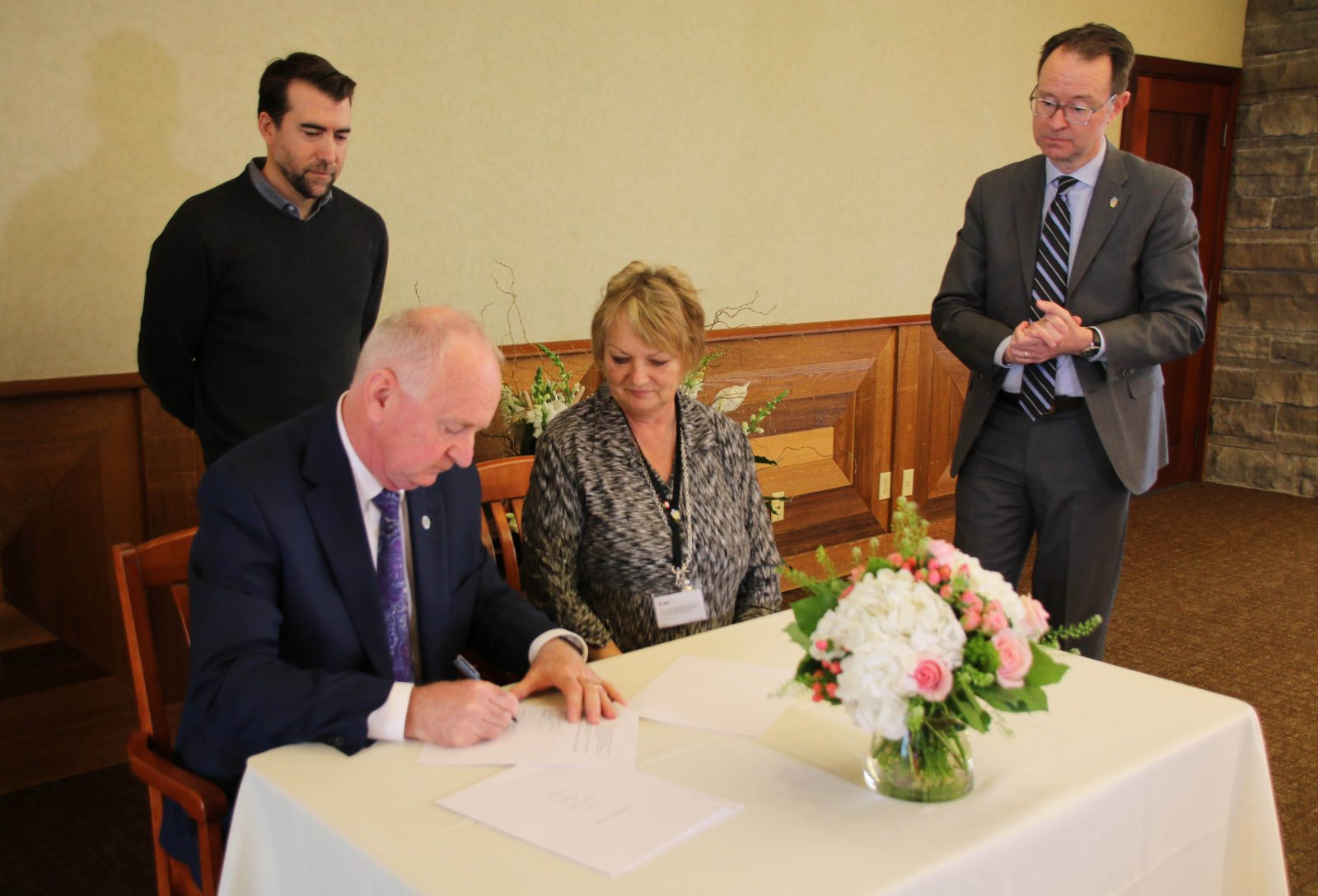Blog Contributor: Erica Harper

On January 26th, 2020 Brock hosted a workshop called “Building better research through community partnerships”, which was the 11th event in the Building Better Research series – a collaboration between Brock’s Office of Research Services and the Library. The panelists included the following faculty and staff members:
- Meaghan Rusnell – Director, Government and Community Engagement
- Julie Rorison – Manager, Community Relations
- Madelyn Law – Associate Provost, Teaching and Learning; Professor of Health Sciences
- Sid Segalowitz – Professor Emeritus and Director, Centre for Lifespan Development Research
- Ryan Plummer – Professor and Director, Environmental Sustainability Research Centre (ESRC)
All panelists detailed their experiences of conducting research through community partnerships, including Dr. Plummer who discussed the benefits of collaborating with the ESRC’s partners. The Centre now has over eight formalized agreements with partners such as the Trail Assets and Tourism Initiative with the Niagara Parks Commission, the Partnership for Freshwater Resilience with World Wildlife Fund-Canada, and the Brock-Lincoln Living Lab, to name a few.
According to Dr. Plummer, here are three main benefits of working with community partners:
- The ability to co-create knowledge in a way that honours and gives a voice to the partners in the community and bridges the gap between scientific knowledge and the needs of the local partners and communities. Dr. Plummer provided a recent example of how collaborating with partners is the key to meeting the needs of the community. He explained that the ESRC’s partners at Niagara Parks were dealing with a dramatic increase in tourism at the start of the pandemic due to the public wanting to get out of their homes and explore local greenspaces.
Instead of having around 220,000 people visit the Niagara Glen per season, the added need for greenspaces led to over 300,000 visitors during the 2020 season. Dr. Plummer mentioned it was important to quickly pivot within the partnership to start responding to an acute community need to support people’s wellbeing throughout the COVID-19 pandemic. This was possible due to a good working relationship with the partners at the Niagara Parks Commission (NPC), and they were able to create a video that showcased best practices for trail safety amid COVID-19 and beyond.
- Every year (pre-pandemic), Master of Sustainability students go on a field trip to visit the ESRC’s community partners such as NPC, the Town of Lincoln, and Vineland, to name a few. During this trip, students have the ability to meet with partners and receive an incredible hands-on experience. This important fieldtrip can even inspire students to take on research related to the partners, which brings us to our last main benefit of engaging in community partnerships. To learn more about this engaging experience and how learning outside the classroom is beneficial for students, read this blog post.
- Through meeting with partners and attending partnership events, thesis students within the MS program are able to look at concerns and needs that partners have and can tailor their research to address these needs. For example, Angela Mallette, a past graduate student, presented her research regarding Niagara Parks. Within two weeks of successfully defending her thesis, two Niagara Parks managers at the partnership’s bi-annual roundtable were able to implement her recommendations. Ultimately, student research related to partnerships has the power to impact hundreds of thousands of people in the community and beyond.
All in all, engaging in community partnerships can lead to a number of impactful research projects and help our community by making a difference in the environment while also enhancing the student experience.



































